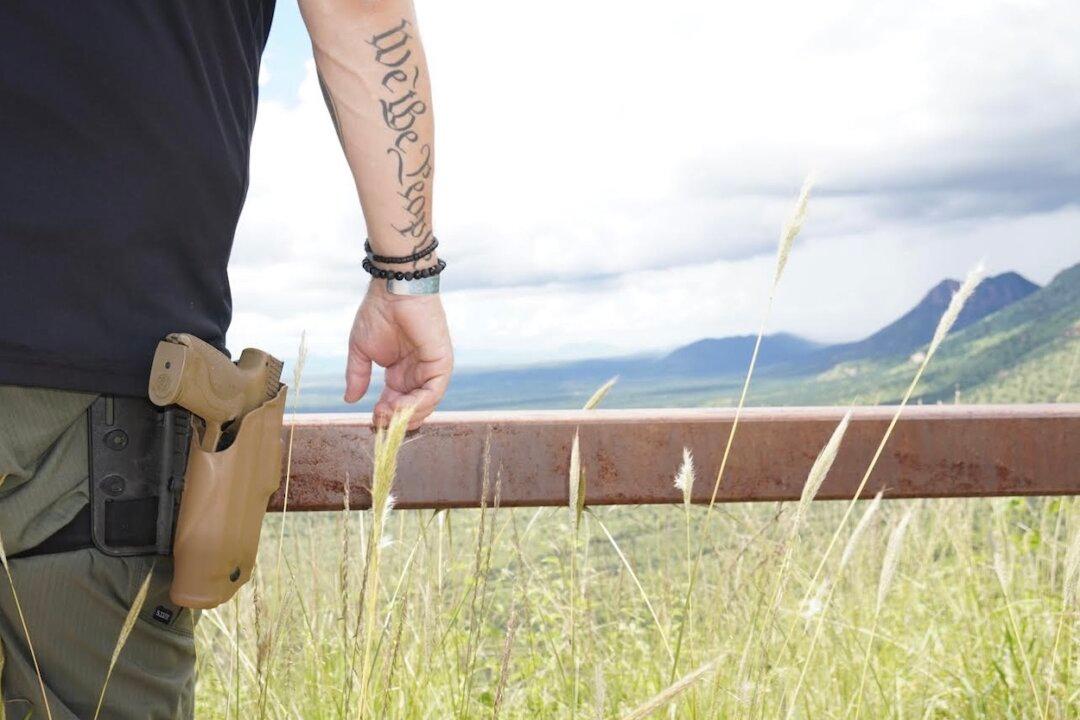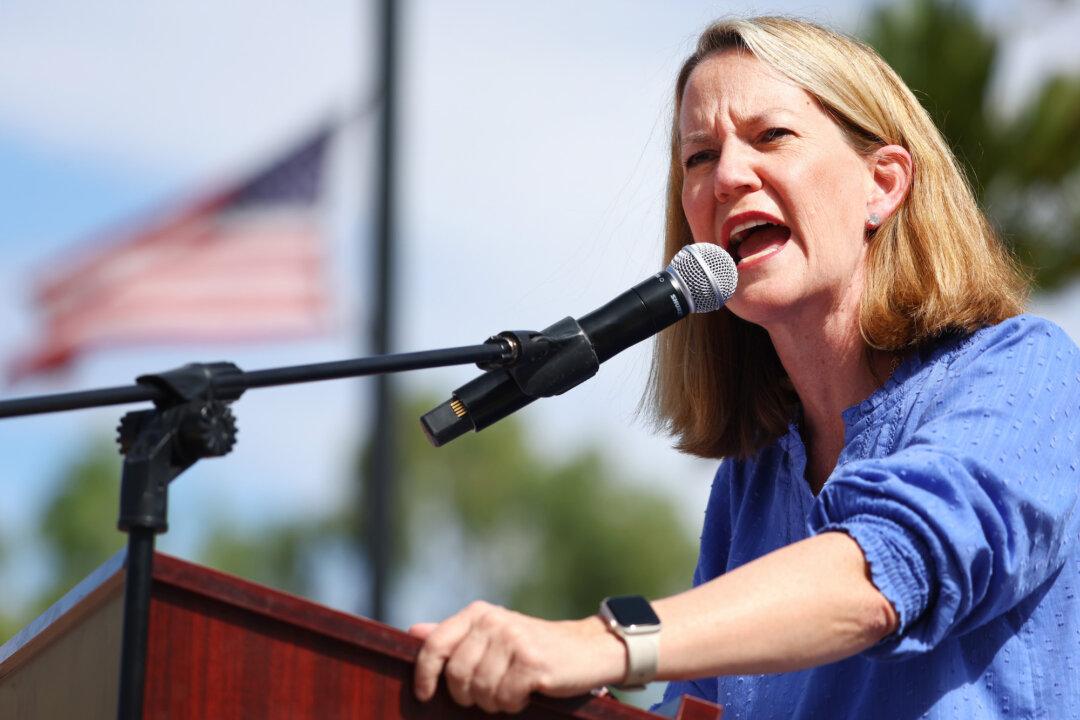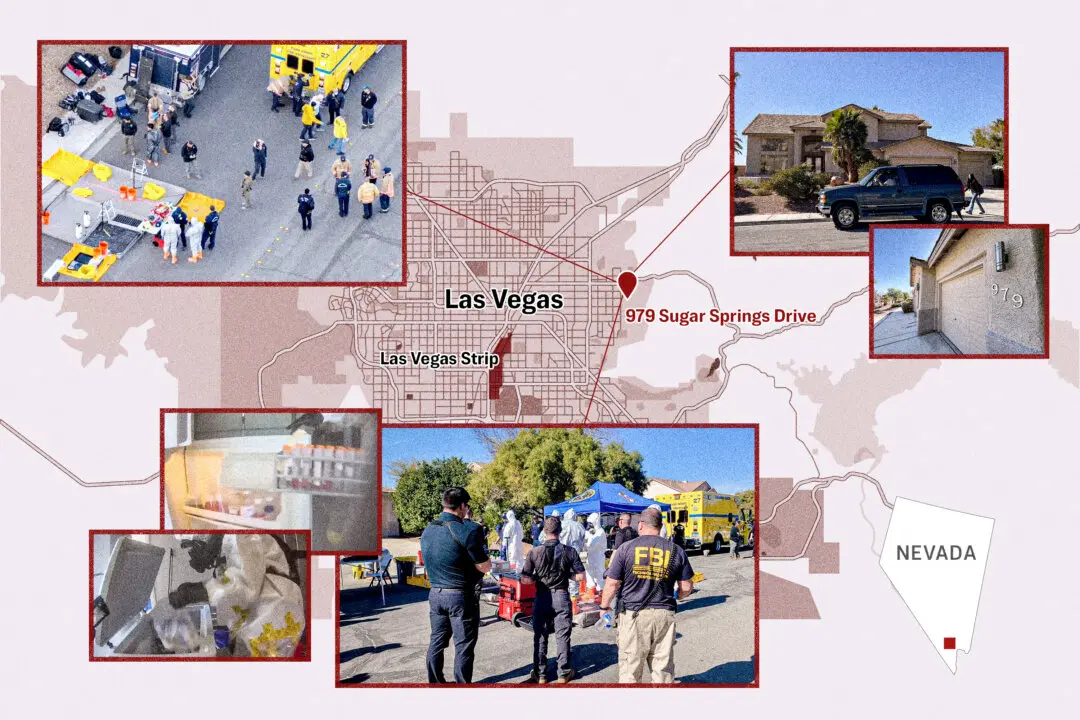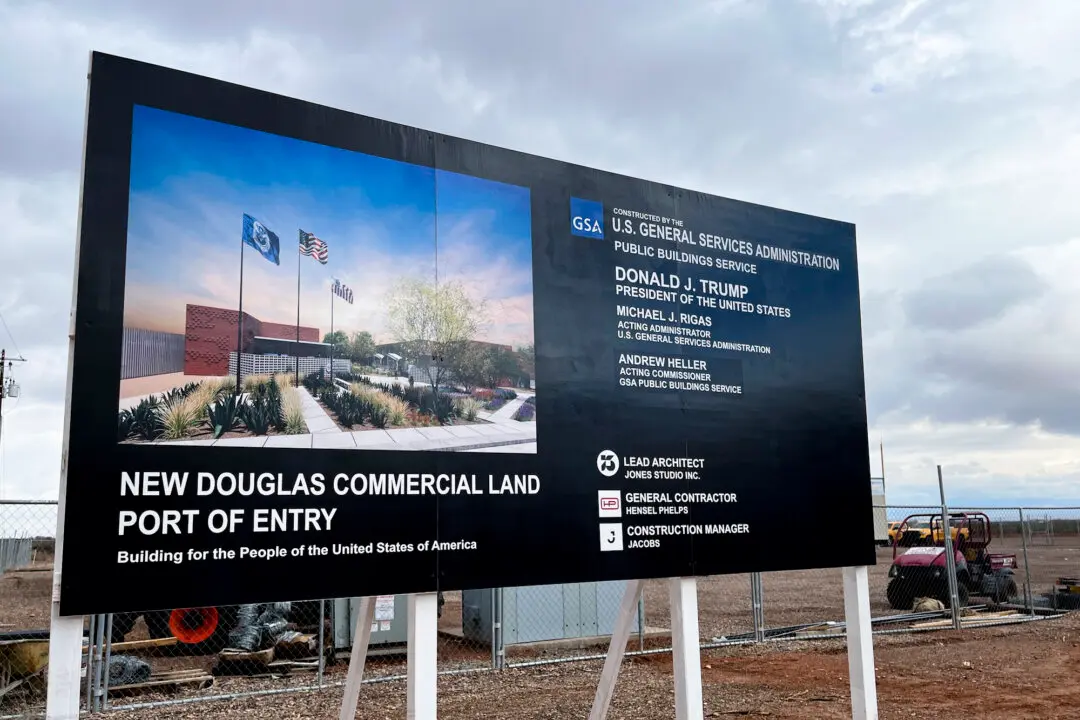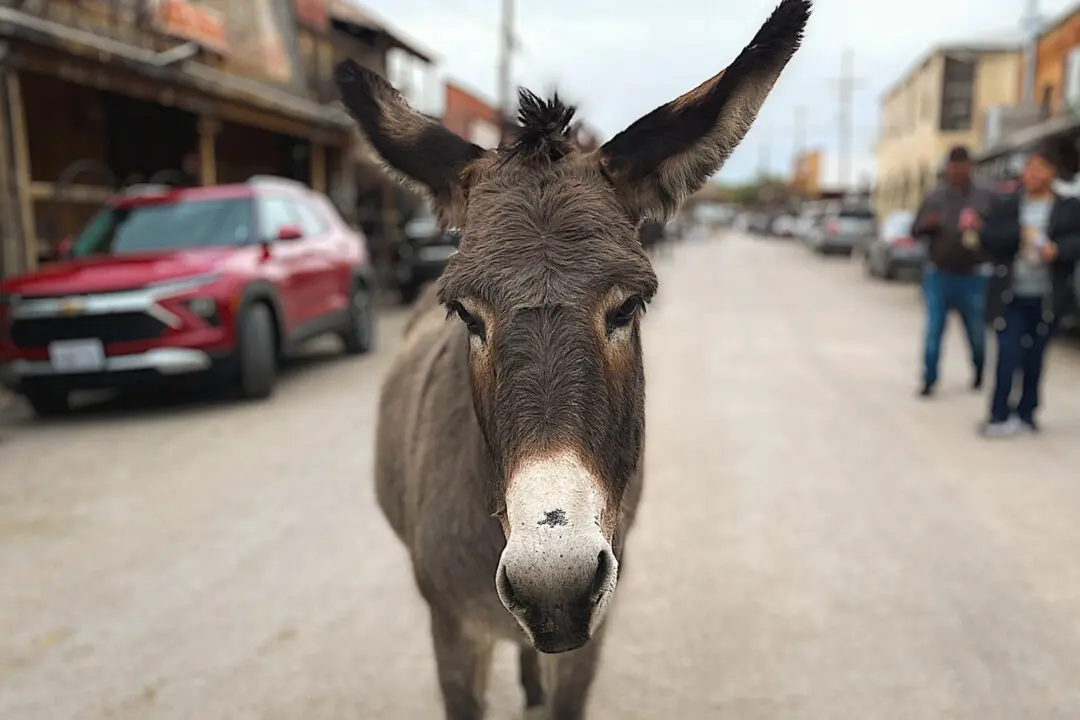ARIVACA, Ariz.—Human smugglers and drug traffickers operate in these woods, Sam my guide whispers as we trudge single file along the rocky edge of a mountain wash, searching for hidden water stashes and food.
His security man Kyle, AR-15 semi-automatic rifle locked and loaded, keeps a close eye on the dense brush above us.
